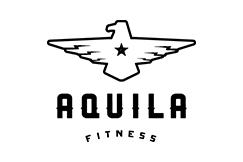Rest Day
Today I want to talk about scaling; both when is it appropriate and why we scale at all. First and foremost each and every workout is designed to provide a specific stimulus. The reason we become more fit is because after we've torn our bodies down, it rebuilds itself so that when it next time encounters that stimulus, it will be more prepared. We scale so that the intended stimulus will be met. Travis puts much thought into the gyms programming. He's forced to balance MANY variables in order to ultimately create stimuli that will improve you all as athletes. Now, it is important that we recognize when and when scaling is appropriate:
Scaling is appropriate when:
1. Without scaling, the workout would be completed in a time domain outside of the desired stimulus. (i.e. if fran takes you 8 minutes Rx'd then scaling down to a weight in which sub-5 min could be met, thus meeting the stimulus of making you never want to workout again).
2. You are seriously concerned of injury (if you know you have knee problems then scaling box jumps might be a good idea)
3. Without scaling, the workout would far exceed the capabilities of the individual to lift the prescribed weight thus meeting the intended stimulus (if the work out expects you to Deadlift 225# 45 times in a workout and 245# is your pr, scaling is appropriate)
4. Any more Bro Mike? You may want to scale if _____________… Wait are you still in exile?
Scaling is inappropriate when:
1. The workout that day includes "heavy thrusters" but you always do thrusters with a training bar and ten pound plates so today you use a training bar and ten pound plates.
2. You've never used a kettelbell heavier than 18# and today's workout asks that you do… even if you're uncomfortable you'll likely be capable of 26#er. Get comfortable with uncomfortable
3. It feels heavy… when we speak of a load being heavy when strength training you'll often here me telling you to "go up, it's too light." It is not that I don't think you are trying but there is a difference between the load feeling heavy and you being incapable of lifting it because it is too heavy. One is perception of effort and the other is physiology. If it is too heavy, we will let you know.
Though I recognize this information is not relevant to many of you in Level 1 (though for some it is), but there are many people new to the methodology as well as others who haven't improved in a while…its all about the stimulus people. The reason I bring this up is because I often see people scaling down much more than they should if they hope to see improvement (this is why we're here right?). I do occasionally see the overambitious who should scale but do not, but this is far less common. Bottom line is if you are concerned with whether or not you should scale then ask your coach. Not that we want to do any more work but our job is to make sure you are moving safely and to encourage an intensity that will facilitate improvement. INTENSITY IS THE VARIABLE MOST STRONGLY ASSOCIATED WITH IMPROVEMENT.
Those of you who are elite, give the newer, less-elite folks direction. Post suggestions of how to be more elite to comments.







Josh Stonier
Awesome post, Blake. That’s a valuable tip for us all to keep in mind. IMPROVEMENT is the goal.
Jamie P
This is how I’m going to get elite:
http://video.search.yahoo.com/search/video?p=forever+lazy
It’s all about the gear, people. And this piece of Awesome looks like it’ll get me where I want to go. A “Forever Lazy” will get me that pull up some time in the next 57 days; it’ll get me to the top of the rope climb, no prob. This right here is my ticket to Elite. I can feel it.
Scott
My advice is to not be afraid to ask the WOD coach for guidance when in doubt. And remember that flexibility is key factor in training.
Scott
And one more thing: set realistic goals, and keep after them until you achieve them. Then set some more goals to replace the ones you just met.
Jamie P
In all seriousness: I struggle with how/when to scale on a daily basis. I don’t have the processed knowledge yet about myself and how I respond to movements to really make a decision by myself. The only thing I have to go on at this point is my past experience: I hate thrusters because of the Newbie Throwdown, so when they come up I grab a training bar and the least amount of weight possible. Definitely not the way to get any kind of improvement. So, now I always ask a coach.
BlakeB.
I want a forever lazy!
BlakeB.
But they do kind of look like cult sweatsuits….
comfortable cult sweatsuits.
Tashnelson
It is only “too heavy” if picking the bar up 1 inch takes all your strength and you get a light-headed fainting feeling from the strain. But I do appreciate help from time to time. Being the new person in Level 1 and starting at the bottom again, I need advice on reps and weights. But I like having the Rx posted. Also, I check Cherie ‘s post in Beyond the Whiteboard to see if I beat her. If not…I know what is technically possible, and that helps me set my own goals.
Pat H.
When considering scaling, usually the most important question to ask yourself (or the coach) is, ‘what is the target time domain?’
If the workout is 5 rounds with ‘X’ weight and ‘Y’ reps and the target time domain is 8-12 minutes, don’t pick a weight or # of reps that is going to take you 5 minutes (too light/too few) or 20 minutes (too heavy/too many), find something that will keep you in the target. Most workouts have a target time domain (alternatively this can be a target # of rounds as in an AMRAP or a target Reps as in FGB), but you get the picture.
If you try to figure out the target/point of the workout, it will help you decide if and what you need to scale or not. I encourage everyone to go through the exercise of trying to figure this out yourself in your mind and come up with a decision before you ask the coach, so you get used to picking the appropriate weight/reps/rounds. After you try to get it sorted out on your own, then ask the coach what they think to see how you did.
If you practice figuring out the target domain and picking your appropriate level of scaling, I promise you it will become much easier to figure out with time, and you will be able to taylor each workout to maximise your own personal benefit.
For example, if I know I am strong as an ox, but I suck at metabolic conditioning, maybe I need to taylor more workouts with a little less weight and focus on finishing the workouts faster.
The converse is also true, If I am a bodyweight metabolic conditioning monster but have tiny T-Rex arms, then maybe piling on a little more weight and sacrificing total workout time/reps/rounds is what I need most.
I guess what I am saying is if you want to progress, it requires effort to try and understand the point of every WOD, and then maximize that WOD for you personally. That is why every workout can be wildly different for each person, even with the same WOD, and that ‘Rx’ is not necessarily the best prescription for everyone every day.
Hope this helps.
ph
Olga B
Blake, great post. Yes, get ready for more work.
I definitely struggle with conditioning. Every WOD takes too long to do. I was quizzing Trav and AO about What may be the issue here and I got that proper scaling needed to reach the right intensity, and a good night sleep. So, Jamie, a “Forever Lazy” might do the trick.
Pat H, very helpful, thanks.
Ashley Latimer
Great post Blake. Great reminder to consider the intended stimulus for each workout and to go for that, rather than Rx for Rx sake. We’re lucky we have such intentional and effective programming (thanks Travis!) and coaches who are willing to come up with scales to maximize our individual potential. Let’s not take that for granted!
Alice
Just a reminder. Rx= everything as posted with no scaling. If you use bands for pull ups, that is not Rx.
On another note, thanks to John Michelmore who offered me his 30# DB, so that I could do last Thursdays WOD Rx. Thanks for being aware.
Pat H. beautifully put.
Donna
Great post, Blake. So young, and yet so wise! I LOVED your quote: INTENSITY IS THE VARIABLE MOST STRONGLY ASSOCIATED WITH IMPROVEMENT. I’ll have to pull that one out when I’m being particularly intense with my employees! 😉
Like Jamie, I’m still trying to figure out what my limits are and whether or not I should scale the workout so that I can go at it with the highest intensity possible. My philosophy is to start at Rx and if it’s too hard, I just scale down. The couple of times I’ve left the box just completely pissed off at myself are when I scaled down when I should’ve Rx’d. It really ruined the rest of my day. Seriously. Conversely, I don’t think I’ve ever been pissed at myself for pushing myself too hard . . . . just sayin’.
BlakeB.
Wish i could tell you that that’s my quote, Donna. Sadly, it is not..
angela
Who has tiny T-Rex arms?
Cherie Nabeta
It’s tricky! I’ve taken a few DNF’s for attempting to Rx a WOD I should not have (just last week). On the other side been told I need a CrossFit “chaperone” to get the right weight on my bar. The guidelines of “use xx% of 1 rep max” really help…as well as the whiteboard from the 6amers.
Canada Goose
I grab a training bar and the least amount of weight possible. Definitely not the way to get any kind of improvement. So, now I always ask a coach.